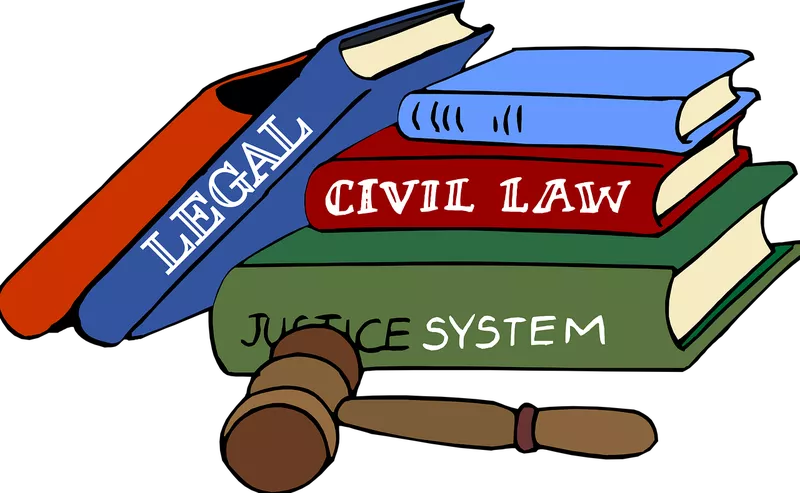Legal Practice and AI: The Robotic Jurists Transforming Law and Justice
In the realm of legal services, the advent of artificial intelligence (AI) has initiated a transformative shift, mirroring the revolutionary changes seen in healthcare. As digital advocates, AI-driven tools are redefining legal workflows, from client intake to case resolution, altering traditional practices with efficiency, precision, and innovative outcomes. Below is a detailed look at the integration of AI in the legal field, contrasting conventional methods with AI-augmented processes, and highlighting the trailblazers and future prospects of this techno-legal evolution.
📜 From Consultation to Verdict: The AI-Augmented Legal Journey
| Workflow Stage | Influenced Areas | Traditional Methods | AI Applications | Leading Innovators | Future Disruptions | Examples |
|---|---|---|---|---|---|---|
| 🖋️ Client Intake | Client Onboarding, Legal Research | Face-to-face meetings, Manual research | Online intake platforms, AI-driven legal research | LegalZoom, ROSS Intelligence | Virtual reality client meetings, Predictive case outcome analytics | LegalZoom – Automated legal services with intelligent document preparation. |
| 🕵️♂️ Case Analysis | Litigation, Due Diligence | Manual case file review, Traditional due diligence | AI pattern recognition, Predictive analytics in litigation | Lex Machina, CaseText | AI judges for small claims, Enhanced litigation outcome predictors | Lex Machina – Legal analytics for strategic insights into case law. |
| 📝 Document Drafting | Contract Management, Legal Documentation | Manual drafting, Standard templates | AI contract generators, Automated legal drafting tools | ContractExpress, DoNotPay | Smart contracts, Self-improving legal templates | ContractExpress – AI-powered document automation software. |
| ⚖️ Dispute Resolution | Arbitration, Mediation | In-person negotiations, Traditional arbitration | ODR platforms, AI mediation simulations | Modria, Smartsettle | AI arbitrators, Cross-jurisdictional virtual courts | Modria – Online dispute resolution technology. |
| 📊 Evidence Review | Discovery, E-Discovery | Manual document review, Linear evidence analysis | AI-assisted document review, Predictive coding | Everlaw, DISCO | Continuous active learning (CAL) in discovery, AI forensic analysis | Everlaw – Cloud-based e-discovery and litigation platform. |
| 🤖 Legal Assistance | Paralegal Work, Client Support | Human paralegals, Basic software tools | AI legal assistants, Chatbots for client queries | Luminance, Kira Systems | Autonomous AI paralegals, Deep learning for legal reasoning | Luminance – AI platform for legal document analysis. |
| 🔍 Compliance Monitoring | Regulatory Compliance, Risk Assessment | Manual policy reviews, Compliance checklists | Real-time AI compliance tracking, Predictive risk analysis | ComplyAdvantage, RAVN | AI policy generators, Real-time global compliance updates | ComplyAdvantage – AI-driven financial crime risk data and detection. |
🌐 Legal Trends Influenced by AI
| Trend | Description | Traditional Methods | AI Applications | AI Software | Future Disruptions | Examples |
|---|---|---|---|---|---|---|
| 🔧 LegalTech Adoption | The integration of digital tools is fundamentally changing legal service delivery, emphasizing efficiency and client satisfaction. | In-person services, paper-based workflows. | Cloud computing, smart contracts, and AI-powered research tools. | Rocket Lawyer for online legal services. | Self-executing smart contracts, AI lawyers for routine tasks. | Rocket Lawyer for legal documents and advice. |
| ⚖️ Predictive Justice | Using historical case data and analytics to forecast case outcomes, enabling more strategic legal planning. | Reliance on lawyer expertise and case precedents. | Data-driven prediction models, deep learning for case analysis. | Blue J Legal uses AI for prediction accuracy. | Simulated court outcomes, AI for complex decision-making. | Blue J Legal for legal outcome forecasts. |
| 🛡️ Privacy and Security | The digitization of legal data necessitates strong cybersecurity measures to protect sensitive information. | Manual security practices and compliance policies. | AI-enabled real-time threat detection, automated compliance systems. | Nuix for secure data processing. | AI preemptive cybersecurity, autonomous regulation enforcement. | Nuix for digital risk management. |
| 🌍 Access to Justice | AI is making legal assistance more accessible, especially for traditionally underserved communities. | Pro bono work, legal aid organizations. | AI chatbots for legal advice, automated assistance with legal documents. | DoNotPay for automated legal tasks. | Global AI legal platforms across multiple jurisdictions. | DoNotPay for common legal challenges. |
| 📜 Ethical AI in Law | Ensuring AI in legal decision-making adheres to high ethical standards is a growing focus. | Adherence to bar association standards, ethical codes. | Ethical AI development frameworks, transparency in AI decisions. | RAVN for ethically managed legal information. | AI systems with real-time ethical compliance monitoring. | RAVN for AI-driven legal efficiency with an ethical approach. |
| 🌐 Cross-Border Legal Collaboration | AI is streamlining international legal collaboration and reducing jurisdictional complexity. | Collaboration through multinational teams, navigating different legal systems. | AI-powered translation, international databases, cross-jurisdictional platforms. | ROSS Intelligence for cross-border legal research. | Unified legal practice platforms for global case management. | ROSS Intelligence for seamless legal research. |
The integration of AI in the legal sector is pioneering a new era of jurisprudence that is more streamlined, equitable, and forward-thinking. As digital advocates of justice, legal professionals are harnessing AI to enrich their practice, ensuring that the legal system evolves tomeet the needs of a rapidly changing world. AI is not just an aid to the legal industry; it’s a catalyst for redefining the very fabric of legal processes and outcomes. Through the use of sophisticated algorithms and machine learning, legal practitioners can now provide services with greater speed, accuracy, and tailored client experiences.
As we stand on the cusp of a legal revolution, the potential for AI to further disrupt and enhance the practice of law remains boundless. With each technological advancement, we move closer to a world where justice is not only blind but also insightful, informed by the vast knowledge and impartial analysis that only AI can provide. In this new era, digital advocates stand ready to deliver justice with a precision and foresight previously unimaginable.
